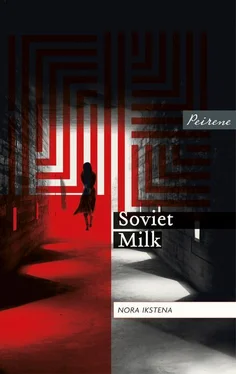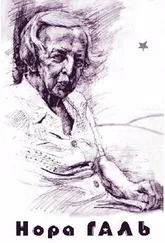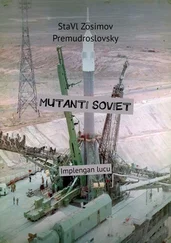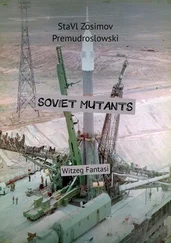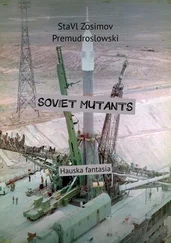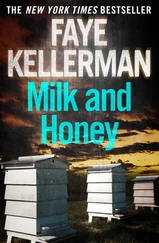*
‘Mamma, I was accepted! I was accepted, Mamma!’ She almost tripped over the pile of wire brushes as she stormed into the house. Breathlessly, she told me about her strange summer of studying behind heavy curtains, so that the sun wouldn’t tempt her to go outside. She described the national competition through which girls from country schools who had kolkhoz and Soviet farm recommendations and who only got grade 3s out of 5 in all their subjects might still be accepted at university. She described the old professor who had saved her life in the literature exam: she had been unlucky, drawing a topic to defend on contemporary life difficulties in the novel Zīda tīklā – ‘The Silk Net’.
Jesse and I had waited so long for her. The summer had felt endlessly hot. Working at those wire brush piles, despite my skill, I always had fine scratches on my hands, which became inflamed in the heat. My fitful, dream-filled sleep reminded me of the summer when I was expecting my daughter. Memories of blurry visions: of a light that shines into me as I stand at the window, that gathers behind my breastbone and pierces painlessly through me to emerge from my head. However much I wanted to, I couldn’t turn my head to see if it was all the same light. Intrusive thoughts about children as the fruit of sin assailed me. I contemplated bastard children brought up by wild-animal mothers or left in baskets at rich people’s doorsteps or set afloat in rivers. I considered maidservants made pregnant by their masters, who jumped into rivers or died at the hands of quack doctors. I dwelt on women abortionists of the offspring of sin, who had gone mad, been driven away or burned on pyres.
Here she was: my daughter. Not a bastard, nor the fruit of sin. Thirsting for life, she lay in our garden, where Jesse’s multicoloured autumn blooms and her yellow dill flowers spread their fragrance.
‘Mamma, come and lie down beside me,’ she said. ‘The sun is still so gentle and the grass is warm.’
I went out into the garden and lay down beside her. She took my hand.
‘You’ve got lots of scratches from those brushes, Mamma. You have to go back to the ambulatory centre, at least try to. Do you know what happened in the city’s streets this summer? Your stepfather said it was unbelievable. It looks as though everything is about to change and we will be set free. Maybe you can even try returning to the city. You’re a brilliant doctor after all. You’ll find work for sure.’
I clasped my daughter’s hand tightly and said, ‘Yes, freedom is close at hand, I feel it. It’s no longer far away.’
‘I never know when you are speaking from the heart and when you are speaking just for the sake of saying something,’ my daughter said.
‘I throw the dice for words from the heart. Let them fall as they may.’
Jesse was calling us to lunch. She set out tiny new potatoes with a wild chanterelle sauce and freshly salted pickles.
‘Maybe you’d like milk with this,’ Jesse suggested. ‘We have some here, from a neighbour’s cow, milked fresh yesterday.’
‘No,’ my daughter replied immediately. ‘Jesse, definitely no milk for me.’
‘Do you still get nauseous from milk?’ I asked.
‘I don’t know, but better not to try it,’ my daughter said, cutting me short.
For a while we ate in silence. Then Jesse suddenly began to tell the story of a loner who had gone off into the hills because he was disappointed in people and the world they had created. She talked breathlessly as if she’d waited a long time for an audience. Where did she get these stories? From the discarded newspapers, or the torn and shredded books?
Forgetting the delicious meal, she went on: ‘He took with him only his cane, which was more faithful even than a dog. The cane helped the loner to climb the steepest hills, cross the most dangerous passages, traverse the longest of roads, which led him away from the world that had chosen the wrong path. The loner didn’t have the power to lead so big an entity as the world onto the right path. That’s why he left: at least he need not be a factor in others’ choices. Leaning on his cane, he had gone sufficiently far to feel his absence from the world. Amid hills under a wide blue sky, he had air to breathe freely and an unpoliced road under his feet. But this first impression, as so often, turned out to be deceptive, for pretty soon the loner started to grumble – first to himself, then at his cane. Thus he spent several years, until he suddenly realized that, having left the world while leaning on his cane, he still had no right to call himself a loner. When he came to a bridge over a fast-flowing river, the loner threw his trusty cane into the current. That wasn’t easy; for many years they had walked hand in hand. Now it seemed to the loner that he had freed himself from his last earthly burdens. Yet, no matter how far he went, more and more often the loner felt that he was dragging along all the world’s burdens. And now he had to carry them alone, for he no longer had a cane…’
Jesse fell silent. The potatoes and mushroom sauce on her plate were getting cold.
‘Jesse, you have such great stories!’ my daughter said.
I was sitting in the kitchen at the table, Jesse on one side, telling the story while her meal got cold, my daughter on the other side. Everything slid past me: Jesse’s story, the garden beyond the window, the warmth of my daughter’s arm as she brushed against me taking away the dishes. Everything slid by.
*
That autumn, when I started my first university course, we were still sent to a distant Soviet kolkhoz to help with the harvest. Even there a sense of change hung in the air. Everyone – the administrative staff as well as the common workers – drank from morning till night. We were squeezed into a couple of multistorey buildings that stood in the centre of the region. From there we were taken to do hell’s work. The rotted grain had to be shovelled together with the good grain, probably to increase the overall volume. The same with the potatoes, which were gathered by a terrible old harvester machine. It held boxes where we had to pile stones and then the potatoes on top. In the midst of all this the drunken Soviet kolkhoz director kept shouting, ‘May this whole kit and caboodle go to hell!’
The month dragged on until it felt like a year. We had to survive this interim station where they had managed to strand us once again. I spent the evenings in bed with a small flashlight and Zarathustra. He asked pointed questions of me, to which for the moment I had no answers. My hands still reeked of rotten grain. Before my eyes flashed the potato harvester, while the stones in the potato boxes rattled on into my sleep.
One day in the drying-kiln I accidentally waded into some bilge. My legs were drenched to the knees. No one was able to drive me back to our barracks that day. After returning with the others and spending a sleepless night, by morning I had a high temperature. My university colleagues covered me with their blankets, left me the tea kettle and went out to the fields. I remained on my own.
I slept in a feverish semi-consciousness. My broken sleep brought strange visions. I was knocking at the door of our building in Riga. Oddly it was locked. People leaned from the windows – but they had all died. There was Mrs Migla, whose baby had died on the train to Siberia. His little body had been rolled down the railway embankment between stations. And Mrs Frišs, who used to tell how she had been saved from the Nazi executioners in Siberia, and Mrs Mežinskiene, who didn’t talk about anything. And there, high up, was my mother leaning out of the attic ventilation window. She had something clenched in her fist. She let go. A large key landed at my feet. The windows closed one by one and everyone disappeared, including my mother. I picked up the key, cleaned the sand off it and tried to unlock the door. But the key got stuck and I couldn’t turn it either way. I very much wanted to get into our flat, where my grandparents were probably having their supper. My mother might even be there too since she had thrown me the key. But the door would not give. I awoke in a sweat, bundled in blankets in the clammy room.
Читать дальше
